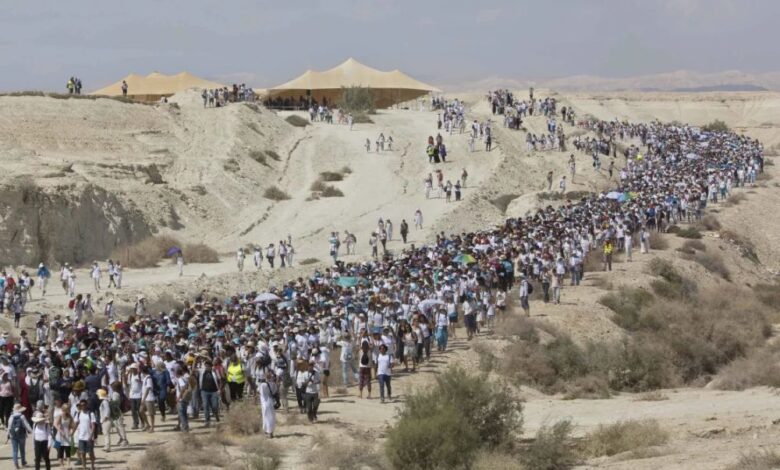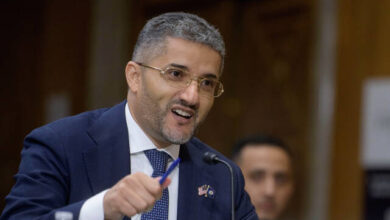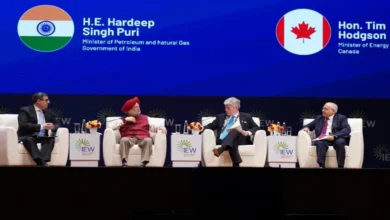
By Anne-Marie Slaughter and Xanthe Scharff
Special to The Times Kuwait
On July 19, US Secretary of State Antony Blinken said that negotiations on an agreement to release hostages held in Gaza and establish a ceasefire are nearing the finish line. Such an agreement is long overdue and could lay the foundations for a peace settlement. But to build peace, rather than simply declare it, policymakers must engage a wider range of actors, starting with women.
Fortunately, this process is already underway, according to Israeli peace activist Yael Braudo-Bahat, who met with US officials on May 30. As the co-director of Women Wage Peace, a powerful grassroots peace movement in Israel with more than 50,000 members, Braudo-Bahat moves in lockstep with her Palestinian counterpart M.H. (who goes by her initials for security reasons), the co-founder of Women of the Sun, a peace organization with more than 3,000 members in the West Bank and Gaza.
The two organizations are working together to advocate a non-violent resolution to the decades-long Israeli-Palestinian conflict, notably having held a mass demonstration to demand an end to the cycle of bloodshed mere days before October 7. Two of their founders were included in Time magazine’s 2024 women of the year, and their work has earned them a joint nomination for the 2024 Nobel Peace Prize and an endorsement from the Pope. Still, the Gaza war had been raging for eight months before US officials invited either organization to give a briefing on their shared Mothers’ Call declaration, which supports a political solution to the conflict and women’s inclusion in peace talks.
These peace activists have built momentum. On May 29, Palestinian organizations that have women in prominent leadership roles convened in Ramallah to join forces in calling for peace. And on July 1, dozens of Israeli organizations, including Women Wage Peace, held a massive peace rally in Tel Aviv, helping end a decade of political division within the movement.
Now, they need more attention and resources. In particular, some of the $26 billion that the United States will spend this fiscal year on support for Israel and humanitarian relief in Gaza should fund these women peacebuilders — an agenda enshrined in US law. After Congress passed the Women, Peace, and Security Act of 2017, the US adopted a national strategy in 2019 to ensure that women are ‘prepared and increasingly able to participate in efforts that promote stable and lasting peace’.
The Biden administration issued an updated women, peace, and security strategy and action plan in 2023, citing research that shows that durable peace agreements are 35% more likely when women participate in negotiations.
The updated plan calls for a review of all efforts by different US agencies to promote women’s meaningful participation in peace operations and security matters. And in the meantime, an elaborate web of offices, policies, and funding streams within the US government — including the Office of Global Women’s Issues in the State Department, the Gender Policy Council in the White House, and the Women, Peace, and Security Caucus in the House of Representatives — has been built to support this agenda. Just this month, Blinken hosted a women, peace, and security reception at the NATO Summit, although he did not mention women’s involvement in talks about Israel and Palestine.
But despite these wide-ranging efforts, there is still a large gap between rhetoric and reality. The top US policymakers negotiating a ceasefire between Israel and Hamas are men. Moreover, American officials recently participated in United Nations-sponsored talks with the Taliban that excluded Afghan women. And globally, only one of the 18 peace agreements reached in 2022 was signed or witnessed by a woman.
There is still time, however, for US policymakers to change course. Regardless of whether an agreement on a ceasefire and hostage release is concluded or remains stubbornly out of reach, the Biden administration should commit to including women in all future US-mediated talks.
At the same time, the US should join with countries in the region and Europe to launch a broader peacebuilding initiative that puts Israeli and Palestinian voices and needs at the center of negotiations. Communities on the ground, including civil-society groups and women leaders, could thus participate more directly in the process of reaching a new settlement. This may help avoid the failure of the Oslo Accords, which were negotiated in secret and excluded both women and grassroots organizations.
Policymakers should also hold more visible meetings with civil-society leaders in the region. Peacebuilders face an uphill battle in communities that are being bombarded by disinformation and propaganda. US officials can amplify the efforts of these women by standing for photos with them, mentioning their work in public statements, and sending envoys to visit them – as other countries have done.
War is still largely the province of men, while the work of rebuilding societies and repairing trust continues to fall disproportionately to women. Including women, especially those active in civil society, in official peacemaking efforts can help bridge this gap, as peace talks in Liberia, Northern Ireland, and Tunisia have shown. M.H., from Women of the Sun, put it best when she said to one of us: “It’s time to invest in peace as much as we invest in war.”

Anne-Marie Slaughter
Anne-Marie Slaughter, a former director of policy planning in the US State Department, is CEO of the think tank New America, Professor Emerita of Politics and International Affairs at Princeton University, and the author of Renewal: From Crisis to Transformation in Our Lives, Work, and Politics

Xanthe Scharff
Xanthe Scharff, a non-resident senior fellow at the Georgetown Institute for Women, Peace and Security, is a member of the Board of Advisers at PhilanthPro, Co-Founder of The Fuller Project, a global newsroom dedicated to journalism about women, and Founder and Board Chair Emerita of Advancing Girls’ Education in Africa.
Copyright: Project Syndicate, 2024.
www.project-syndicate.org




























